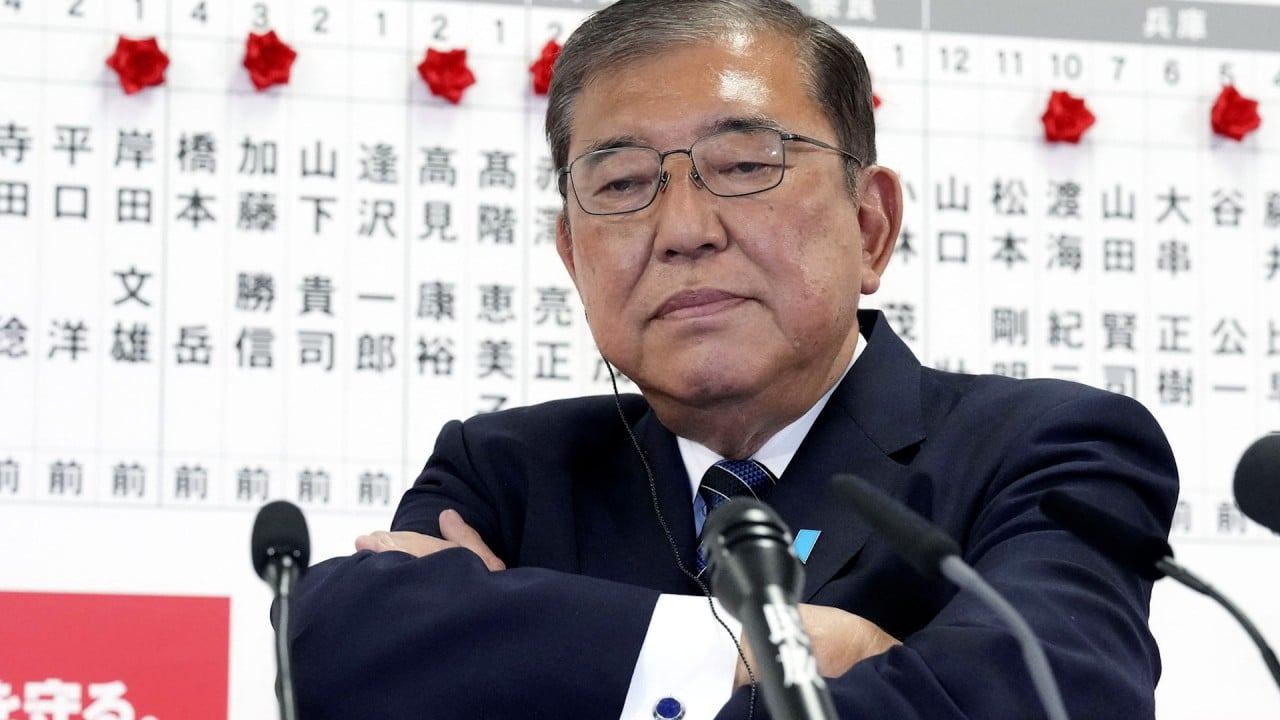In 1983, Japan’s prime minister Yasuhiro Nakasone reportedly likened the country to an “unsinkable aircraft carrier”, as a base for US strategic interests in Asia. But Japan now seems to be doing its best to scuttle itself politically, given the results of the election on October 27 called by new Prime Minister Shigeru Ishiba.
“Sayonara Japan, bastion of political stability,” wrote economic analyst and self-styled “Japan optimist ” Jesper Koll after the country’s lower house general election left Ishiba’s Liberal Democratic Party (LDP) and its coalition partner, Komeito, without a parliamentary majority.
As Koll, an adviser to previous Japanese governments, observed: “In the world of money and investment, a key pillar to the ‘bullish Japan’ thesis has been ‘Japan is a bastion of political and policy stability’. After today’s election, this will become more difficult to argue.”
Where does this leave Japan as an Asian economic, industrial and financial, let alone military, power? No one seems to really know, including Washington, which regards Japan as the linchpin of its Asia-Pacific alliances and which itself could be plunged into political turbulence after the November 5 presidential election.
The future of the US-Japan alliance may come into sharper focus from an economic, as well as strategic, perspective depending on the outcome of the US election, given US security concerns are already adversely affecting Japanese trade and investment in Asia, some suggest.

05:36
Divisions in Japan’s ruling Liberal Democratic Party pose barrier to PM Ishiba’s policy plans
Divisions in Japan’s ruling Liberal Democratic Party pose barrier to PM Ishiba’s policy plans
One such is Koll, who said at the Foreign Correspondents’ Club of Japan on October 31 that some among the Japanese intelligentsia are questioning the importance of the US relationship, given that Japanese exports are being curbed by US-imposed sanctions.








